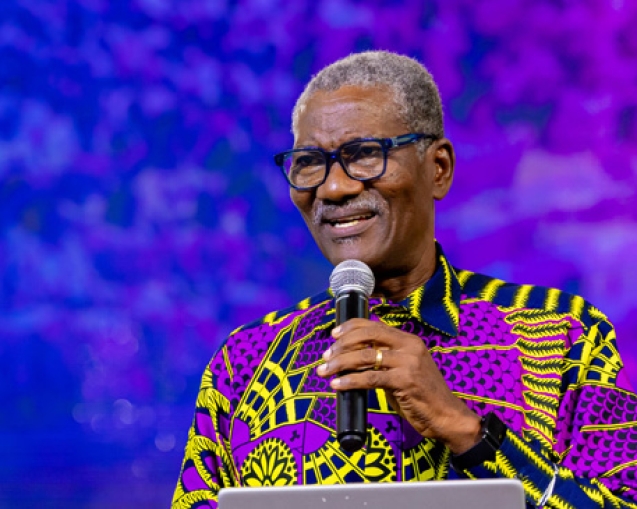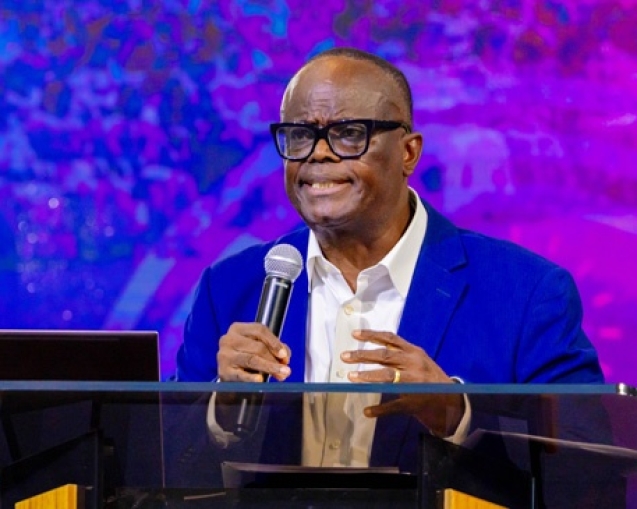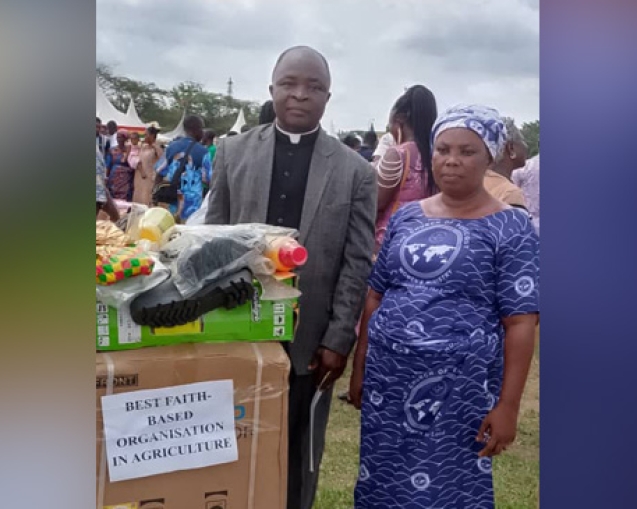At the time world and the global economy seem to be recovering gradually from the ravaging effects of COVID-19 since the year 2020, then came the Russia-Ukraine war to worsen the plight of people. Out of the 634 million cases of COVID-19 reported, 6.61 million lives were lost. According to the BBC, the US has estimated a total of 200,000 military casualties on all sides, thus 100,000 Russian and 100,000 Ukrainian soldiers have been killed or injured in Ukraine. The devastating effects of both COVID -9 and the tussle between Russia and Ukraine have wretched the glories of the global economy and made life unbearable for individuals. Many workers are being laid off, salaries and arrears are not being paid with little hope given to the beneficiaries, businesses are folding up and nations are also feeling the heat. In the wake of desperation and global crisis, leadership in all angles of life comes under sharp criticism and pressure to make critical decisions to bring interventions that will restore both macro and micro economic factors to stabilize the economy. In October 2022, Liz Truss, UK’s Prime Minister, after being in office for just 44 days, had to resign following a failed tax-cutting budget that rocked financial markets leading to a revolt within her own Conservative Party.
During the peak of the COVID-19 pandemic in Ghana in March 2020, the president, H. E, Nana Addo Dankwa Akufo-Addo made a viral statement while addressing the nation saying “We know how to bring the economy back but we don’t know how to bring back life.” Indeed, the economic landscape of Ghana is not new to crises like this. In 1983-84, Ghana saw one of the worst economic crises that almost wasted the land. Over the past three months, the inflation rate in Ghana is not only galloping and reduced the value of money but also increased the cost of living and hardship. In these moments of helplessness, the Executive Council of The Church of Pentecost under the leadership of Apostle Eric Nyamekye declared a three-day fasting and prayer exercise to intercede for the nation Ghana and for the global economy to be restored. Days after, the Moderator of the Presbyterian Church of Ghana, Rev. Prof. Joseph Obiri Yeboah Mante, also declared a three-day fasting and prayer for the nation.
The heated argument and debate in the nation thereafter was, what has prayer got to do with the restoration of the economy and alleviating people from poverty and hardship? While many people applaud the efforts and decisions of the Christian body, others see it as a wasted effort instead of going straight to the leadership of the nation and advising them on what to do. In this article, I will walk you through some global crises that occurred in the Bible and God’s intervention when men prayed.
GLOBAL CRISIS IN THE BIBLE AND GOD’S INTERVENTIONS
The global economic crisis is common to all generations right from creation. In the Old Testament, there were several cases that affected the economy and the livelihood of people in the Bible. During the time of Abraham (Gen. 12:10), there was a severe famine to the extent that Abraham had to leave his country and move to the land of the Philistines for greener pastures. Isaac had to dwell in the land of Gerar (Gen. 26) during the time of economic crisis. The effect of these two famines and the search for daily bread nearly caused both Abraham and Isaac to lose their marriages until God intervened.
Genesis 41-45 recorded the most remarkable of all the famines in the Bible that crushed the economy of the world, and all people had to travel to Egypt to buy grain. This famine lasted for 7 years, and it took the godly intervention of Joseph to save the world. Another severe one as a result of political unrest happened when King Ben-hadad of Aram besieged Samaria and prices of goods shot up astronomically to the extent that a donkey’s head was sold at eighty shekels and five shekels for a bowl of grains. Worst of all, people began eating the flesh of their children when they were left with no option (2 Kings 6:24-28). During the days of Elisha, God called for 7 years period of famine (2 Kings 8:1) to hit the land. In the New Testament, Prophet Agabus prophesied and predicted a famine in Acts 11:28.
Throughout all those times of crises, it took the divine intervention of God through His people to bring the economy back to life. Today, our current generation is not different from the days of old, they suffered from the global economic crisis.
THE PLACE OF PRAYER DURING THE GLOBAL ECONOMIC CRISIS
The power of prayer in times of crisis cannot be underestimated. When we remain quiet and unconcerned, thinking it is the responsibility of the government and politicians, then we are delaying our own breakthrough and economic liberation. When Christians keep quiet, the destruction of the land will befall all of us. Someone needs to stand in the gap, intercede and call on the LORD for restoration. A shut mouth is a shut destiny.
Throughout the Bible, the early prophets and the apostles responded to crises by praying and seeking the face of the LORD for directions. They did not leave the problems to the kings to solve. It was a corporate affair. When the voice of Christians is heard in times of crisis, the voice of God too will be heard to bring deliverance to people.
FIVE THINGS THAT RELEASE DIVINE ENCOUNTER IN ECONOMIC CRISIS
- Divine revelation and direction:
When people are perishing for a lack of knowledge, ideas, and wisdom that bring solutions do not come by sitting down unconcerned and just blaming people. In James 1:5, the Bible says that “If any of you lacks wisdom, you should ask God, who gives generously to all without finding fault, and it will be given to you”. Any time policies are failings, they are an indication that the earlier knowledge and wisdom can no longer solve the problems of today. We need a fresh ideas and wisdom from above.
During the days of Joseph in Egypt and Daniel in Babylon, they sought the face of the LORD, and this resulted in divine revelations and directions that saved the economy. God rules in the affairs and the destiny of men and the nations are in His hands.
- Readiness of people to stand in the gap and intercede
The power of prayer in times of crisis cannot be underestimated. When we remain quiet and unconcerned, thinking it is the responsibility of the government and politicians, then we are delaying our own breakthrough and economic liberation. In Ezekiel 22:30, the LORD said “So I sought for a man among them who would make a wall, and stand in the gap before Me on behalf of the land, that I should not destroy it; but I found no one”. When Christians keep quiet, the destruction of the land will befall all of us. In Ezra 8:23, Ezra testified about what corporate prayer did for the nation, saying, “So we fasted and petitioned our God about this, and he answered our prayer”.
- A speaking covenant
In the case of Isaac, the LORD appeared to him to deliver him from the global crises because of the covenant the LORD has with his father Abraham (Gen. 26:2-5). You are a covenant child of God, sealed with the blood of Jesus and the Holy Spirit. In the new covenant with God, we have the right to approach the throne of grace and lay our petition before the LORD.
- An unwavering faith
Economic crises and troubles in life reveal 3 types of people: those who sit down unconcerned, the critics who think nothing will work and criticize people, and those who pray and take action. The latter are those who have unwavering faith and are ready to hold on to the promises of God. When all hope is lost, we need the people of faith to put their faith to work and call on God.
- Corporate efforts
It takes just one person to conceive an idea but it takes the corporate efforts of people to bring it to realization. Governance of every state requires the corporate efforts of people. When Ezra was talking about the success of prayer that led to the deliverance and provisions of the LORD, he said: “So WE fasted and petitioned our God about this, and he answered our prayer”. He did not pray alone but said “We did it”. Nehemiah couldn’t have rebuilt the broken walls of Jerusalem all by himself. It took the corporate efforts of people. Do not shy away from your spiritual responsibility to both yourself and the nation.
THE WAY FORWARD
Corrie Ten Boom, a Dutch watchmaker, and a Christian writer once said, “Discernment is God’s call to intercession, never to fault-finding”. In these times of global crisis, discernment is to respond to the clarion call of prayer to intercede for the nation for restoration. It is never about fault-finding about political parties on who did that and what went wrong. The many attempts of people and write-ups on social media to boycott the prayer can be seen as an attack to discourage maximum participation to release a divine intervention in the affairs of men.
Remember, G. V. Wigram once said “No one can get above circumstances unless he knows that he has the ear of God. The power of intercession is a great thing to the servant of God.”
Let us stand in the gap!
Let us call onto our God!
For He is ready to hear and answer us.
Written by Overseer Ernest K. Akorli (Kpasenkpe District)


















